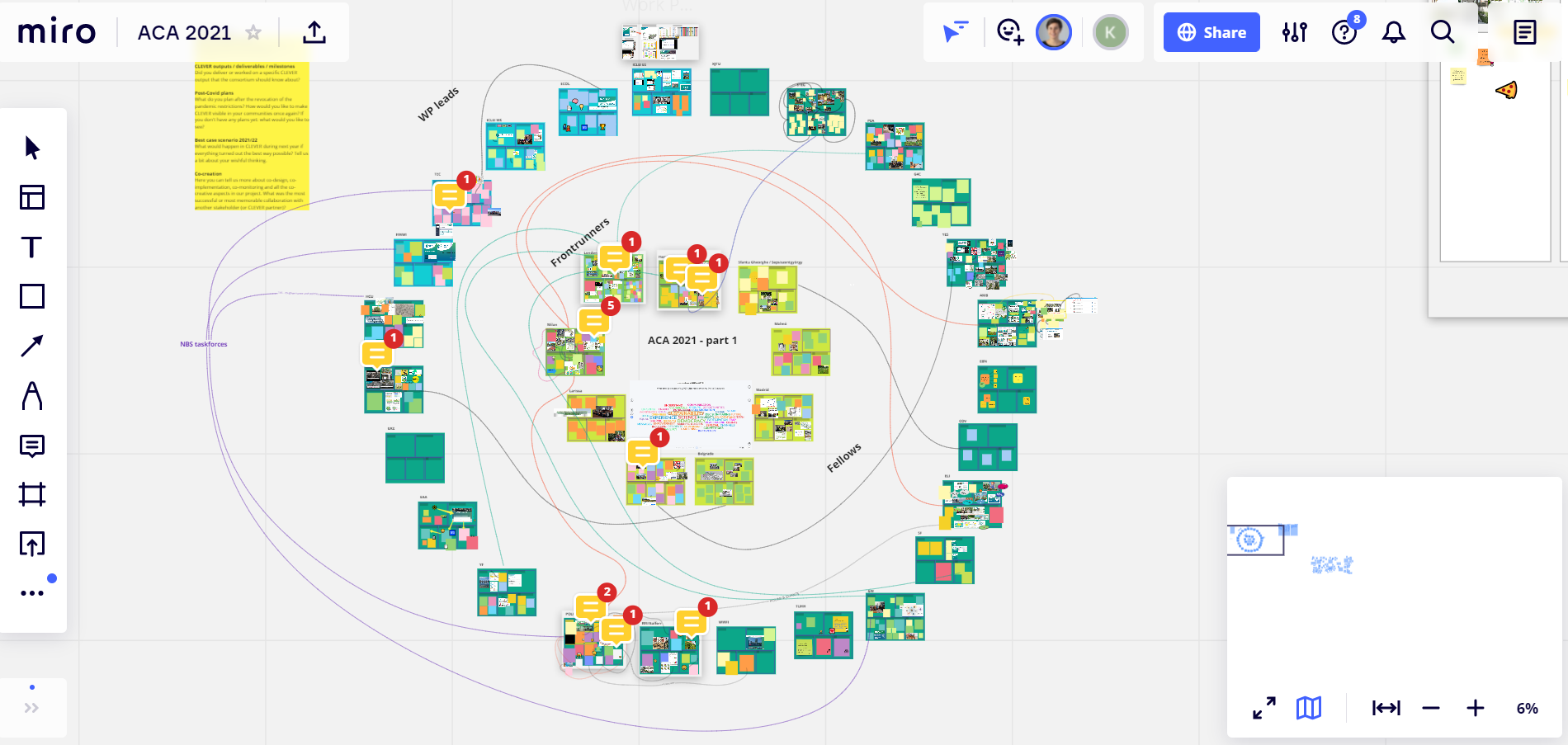News
Latest news on the CLEVER Cities project

28 May 2021
Annual CLEVER Assembly: taking stock of 3 years of progress toward greener, community-driven cities
28 May 2021
###full_location###
Marking CLEVER Cities’ 3-year anniversary, the project’s 34 partners gathered on 26-27 May at the Annual CLEVER Assembly to take stock of achieved milestones and outline a plan for collaboration on the main outputs to be developed over the course of 2022 and 2023, cementing the project’s legacy.
The meeting revealed that, despite the COVID-19 pandemic, CLEVER’s Front-Runner cities have been successful in using digital participation methods to encourage local residents to have a say in how their neighbourhoods will look in the future, and are progressing with the planning, implementation and monitoring of nature-based solutions to build greener, safer, inclusive and more sustainable urban environments.
Some of the highlights presented by the project’s Front-Runner cities at the meeting include:
- Milan’s strategy to increase people's interactions with urban biodiversity through green and innovative elements such as pollinator-friendly spaces, a green buffer near the Tibaldi railway station and co-financed green roofs and walls. The city used open surveys to consult residents as to which amenities they would like to see implemented near the Tibaldi station and to find out their preferred plant species for the space;
- The planting of a flower meadow, an apple orchard and raised bed gardens near a refugee accommodation in Hamburg, as well as the launch of a co-design process to plan the route of a wayfinding system that will interconnect green spaces in Neugraben-Fischbek;
- The launch of a Community Design Collective in London, including 10 local residents committed to creating better outdoor spaces in South Thamesmead. In parallel, a new grants scheme was launched to support individuals, community groups, charities and schools to develop greening projects and nature-based interventions.
The project's Fellow Cities (Belgrade, Larissa, Madrid, Malmö, Quito and Sfantu Gheorghe) provided an update on their progress in the implementation of their roadmaps towards urban nature-based solution plans, which will integrate envisaged NBS with other planning and land use processes at the local level. Quito, for example, included NBS and CLEVER Cities activities as part of the measures to foster inclusive urban regeneration listed in its Municipal Climate Action Plan.
The experience gathered by CLEVER’s Front-Runner and Fellow cities will be distilled in two major project outputs developed in the final years of the project: the "CLEVER Solutions Basket" and the "CLEVER Guidance", which will compile innovative technological, business, financing and governance solutions to foster the replication of NBS in other cities across Europe and world-wide. The second part of this year's CLEVER Assembly, where collaboration on the two products will be discussed, is scheduled for September 2021.






